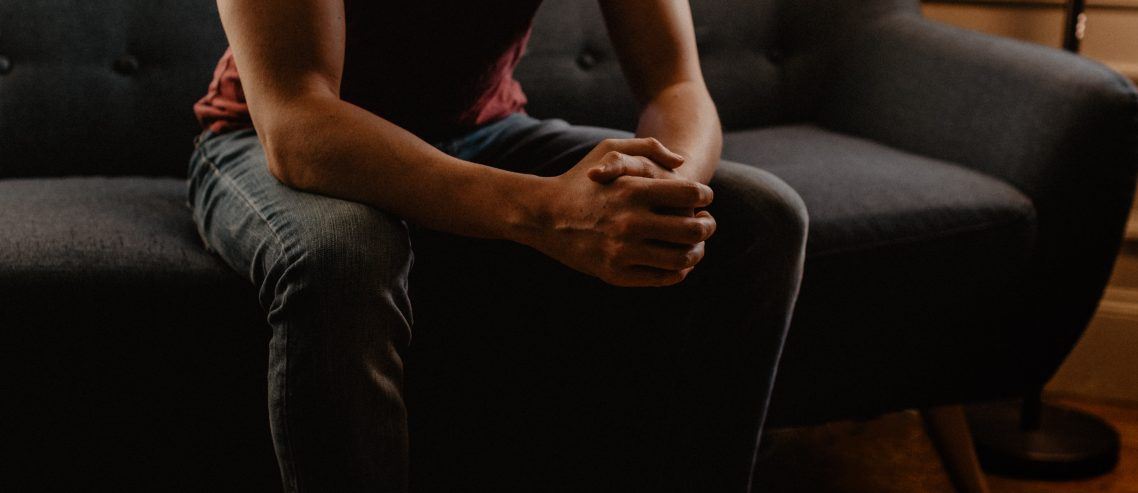Educational Pathways into the Mental Health Field
Embarking on a career in mental health requires a clear understanding of the educational pathways available. In this informative video, hear from our counselors as they share about various academic routes, from bachelor’s degrees to doctoral programs, that can lead to a fulfilling career as a mental health professional. Discover the qualifications, licensing, and certification requirements necessary for success in the field.
Transcript:
Yeah, my path to school counseling was not a straight line. I started off looking into, uh, uh, actually computers. Those were just kind of a big deal back then. And so, looked first at that. And the Lord kind of opened some doors to, uh, consider the teaching profession. And so, I finished, uh, my ICC Associates.
Went to ISU and, um, received my teaching degree there. And then that started another detour and jog in, in God’s plan and will and struggled with getting a job. And what that looked like and tried to do some substitute teaching for a while. And it just seemed like doors kept closing. And so I did that for a couple of years.
And then… I applied back to ISU into their counseling program, and uh, did two years of a degree there, and then a year of internship, practicum, and was able to receive my, uh, my school counseling degree at that point. I applied to two Christian… Um, schools that were out of state and in time I was accepted at Kansas State University was the other school that really felt God’s peace and his, um, blessing.
Number six was a passage that I was reading at the time and this concept of God’s blessing, um, that my blessing will be upon you. Essentially. Him saying, you know what, if you commit to this, I will be with you. My blessing will be on you. My face will shine upon you and I will give you my peace. And that was something that brought a lot of comfort in the midst of the unknowns and the questions and the doubts with kids and family and even some.
Not, not within my, my own family, but definitely within the community that questioned the decision, um, that I was making, um, that, of going back to school, having kids, and the commitment that that would, that would mean. In terms of where I went to school and my, my journey of schooling, um, I started out here in central Illinois at, uh, Illinois Central College.
Uh, I got a two year Associates in Arts degree. And then, uh, transferred down to Illinois State University, uh, where I, uh, completed a bachelor’s degree in, uh, in psychology. But, uh, after, uh, the bachelor’s in psychology, I stayed at, uh, Illinois State University and, uh, went into a master’s program there in counseling psychology.
Once I got done with the master’s program, I was, uh, only, uh, I was out for about a year before I decided to go back and pursue my doctorate in clinical psychology, which is, there’s a lot of overlap between the two, but clinical psychology tends to look more at um, At the things that have are broken or things that are that are where people are struggling.
So I’m really glad that I’ve got that kind of That that breadth of kind of thinking how do we think through prevention? and how do we think through helping people through through struggles and And it really fits with what we do here at ACCFS in terms of thinking about helping the hurting, nurturing hope, and encouraging growth.
And I, I, I love that, that, um, that spectrum. Then I went on for further, uh, study. It had a lot to do with thinking about helping the, the, the church in starting the counseling center. Um, and we didn’t have a CCFS at, at, at that time it was, it was coming into, into being. And, um, and I thought, you know what, if I could help, uh, the church and help other people getting into the field.
And so I wanted to be able to help other people get into the field, um, and really to discern whether it was a good field for them. Uh, and I was a beneficiary of people, uh, like Ron Messner and Dick Kilgus who were, um, Brothers in the church who helped me in that discernment process. And so, and my parents and my elder, so that was really important to me as well.
I went to a program, uh, called fielding graduate university fielding is a. Psychology professional school and, um, it has campuses around. And so I attended in Chicago. I was there for six years. Um, I could have maybe got out in five, but, uh, halfway through, uh, Donna and I had our twin daughters, Julia and Karina.
Um, so that was, that was very interesting. Uh, very much, you know, how those things, things are. You think you see how life is going to be and, and, uh, And, uh, very thankful for how it all turned out, but that was, that was, uh, interesting being in school and having the twins, but going through the fielding, uh, graduate university program, um, along the way, there was where I really developed an interest in obsessive compulsive disorder.
And that’s what I ended up writing my doctoral dissertation on and. It really gave me a chance to go very deep in an area that was really, um, uh, interesting to me. But along the way to the Ph. D., I got a second master’s degree in clinical psychology. So, it was kind of funny because… As I was in school, I love school.
I didn’t, um, I should also say I was, I was in school, but I was also doing some work as well and I didn’t, I didn’t desire to just be in school to be in school. I desired to be in school to learn so I could apply. I was always trying to figure out, uh, what I couldn’t figure out how to help someone or someone didn’t get better when I thought that they, they could have or should have or whatever it that, that sent me on that.
What’s the next thing that we can do to help this? And, um, So I actually had the opportunity to, uh, to go into, uh, and do a, a two year neuropsychology certificate, uh, that would have just added a couple more years to my, to my, uh, to, to the doctorate. Donna was not nearly as thrilled with me going on and she, uh, she requested that I get done with one degree and have it paid for before I go to the next.
Going into the mental health field was not anything that I had, um, like a plan to do as I was graduating high school. I had some plans to do things in the medical field and, um, I was, Going to be pursuing probably physical therapy when I was in high school and that was the path that I kind of felt like was right for me.
And so in the second semester of college, I needed another class to stay full time. And there was an Introduction to Social Work class that was offered and, um, I just kind of thought, well, I don’t even really know what social work is, and I kind of kept flipping through the, um, class outlines, and for some reason that just kind of kept coming back to me, of like, I, this seems like kind of an interesting class, I wonder what a career in this field would look like, and so, actually, at that point, I just kind of signed up for it, still kind of in this area of like, I wasn’t sure what the right direction was, And through the course of that class, I really came to, um, be very interested in the mental health field and, um, just, it was an interesting professor.
She had had a lot of experience in a variety of areas in this field and so, I, that, at that point, I, I thought, you know what, I think that this is a path that I’ll pursue, um, in college. So, after that, um, that course was done and that semester was done, I felt… pretty, um, confident that this was the right path.
It felt like the right fit for me at that point. I went from, um, uh, our local community college and then I was able to apply to the, the local university and get into the Bachelors of Social Work program there. And, um, that was, Also, just a very, it was a huge learning experience for me as I kind of went through each class.
Um, there was a lot of classes that I just really enjoyed and I wasn’t sure exactly the area that I wanted to focus on, but I was offered an internship in a foster care setting. Um, so it was working as a case manager or working alongside of case manager in the foster care system. Through that internship, Just, I had a lot of really great experiences.
I got to see how, um, the court system works and, um, what it looks like to manage a case and, um, kind of walk alongside families in difficult times. And I just also learned that. That going on to get my master’s degree was actually something that I did want to do just for, um, more job opportunities, um, and just different experiences that you can do as a master’s level social worker.
When I was thinking through what my interests were, um, as far as, um, age, age of individuals that I was interested in working in, um, I, Definitely a focus was on, um, being interested in working with children, um, of some kind. I had some thoughts that working in a school setting would be interesting or, um, like through the foster care program.
Um, the interesting piece there is you find out that a lot of the work done in that program is actually with parents, um, or with the adults involved. And that also felt like a really good fit to me also. After that internship was over, I did end up going on to get my master’s degree. I was able to, um, get an internship where I was working with teenagers in the school system.
The program was, um, called Youth Emergency Services and so teenagers were able to request counseling services and I went in and was able to offer, like, About nine sessions to them. That was a really good internship for me I was not exactly sure as I was pursuing my master’s degree that I wanted to do clinical counseling It was actually a little bit lower on my List of jobs I wanted to do I was thinking I would do more school social work or some medical social work something like that and But I just had a really good experience with that in the school system.
Upon graduation from, um, college, the next step of the journey for me was to start the process of being a licensed social worker. So having a, um, going to a college that is, um, an accredited college, like through the ASWB, um, is a really important thing to do because then that helps, that helps. gives you the opportunity to sign up and go through the process of being a licensed, um, practitioner.
And that’s a, that’s a really important thing, um, being able to be a licensed social worker. You have a lot of, um, A lot of job opportunities. It’s really important for um, billing purposes and um, other things as well. Currently I hold a um, I’m a fully licensed social worker in the state of Michigan and then also just through this job I’ve been able to get licensed in um, other states as well.
So after um, finishing high school there, I went to school in Morris, Minnesota. Um, it was a small liberal arts branch at the University of Minnesota. It actually started as a math major because I liked math. I didn’t know you needed to plan any more than that. So I just started as a math major and a couple years in realized I had no clue what I wanted to do and asked a few questions but not enough and decided to change my major to sociology, which for those of you who are listening would know that that’s not a functional degree either.
And finally my senior year realized I had to figure out what I wanted to do with it. So I applied for graduate school, um, four places that I thought I’d be interested in going to. I was accepted at those four, but only at one of them I was offered a grant, and I was pretty financially needy at that point.
And so I didn’t really think through what I wanted to study, I decided to go to the one that gave me a grant. And the grant was from the National Institute of Mental Health and required taking a track that was more of a mental health track and after school looking for, uh, to work in the mental health field in, in a very broad sense.





Comments
Leave a Comment